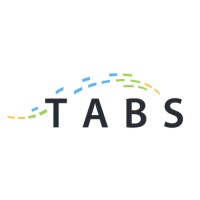Education
Written by
Please note the content is for informational purposes only and not to be relied on

Did You Know That…? When Your Foreign Entity Should Do a ‘Protective Filing 1120-F’ in the U.S.
Many European companies doing business in the U.S. overlook their potential tax obligations due to a U.S. nexus. Even without a U.S. subsidiary, they may unknowingly trigger Corporate Income Tax (CIT) responsibilities. The increase in information exchange between tax authorities makes it harder to remain under the radar.
Companies should be aware of their obligations, including filing CIT Form 1120-F, understanding the W8BEN-E and 1042-S forms, and considering a protective filing to preserve the ability to claim deductions. Ignoring these could lead to audits or complications during due diligence in future business transactions.
Many European companies operating in the U.S. underestimate their possible tax presence in the U.S. and its effect on Corporate Income Tax. If they have a nexus in the U.S. with their foreign entity, their Corporate Income Tax filing (1120-F) is due by June 15.
Why Are European Companies Doing Business in the U.S. Remotely?
The U.S. market is attractive, but fear of litigation, administrative complexity, upfront costs, and maintenance of having a U.S. subsidiary often lead European companies to do business remotely from their European HQ.
Even if a U.S. subsidiary exists, many companies use it merely as a payrolling vehicle or sales and marketing office, while actual transactions with U.S. customers still happen via the European HQ.
With increased AI-driven information exchange between international tax authorities, the U.S. Federal government, and state & local authorities, we’ve seen more cases where tax authorities start questioning why European entities are not filing taxes in the U.S.
Factors Driving This Trend
- Strong U.S. Dollar: The 13% increase in the USD over three years makes initial investments higher but European companies’ products/services more competitive.
- Employer of Record (EOR) Misconceptions: Some global Employers of Record (EORs) market U.S. payroll solutions without highlighting tax risks.
- E-commerce Expansion: Platforms like Amazon allow companies to operate in the U.S. without setting up a legal entity.
- Uncertainty About U.S. Elections: The November elections may cause businesses to delay establishing U.S. operations.
While the remote model might seem cost-effective, research suggests it doesn’t maximize U.S. market potential. Companies operating remotely should at least understand tax consequences and consider filing CIT Form 1120-F annually—especially if U.S. clients request W8BEN-E forms.
What Are The W8BEN-E And 1042-S Forms?
Whenever a non-U.S. company invoices a U.S. entity for a U.S.-based transaction, the U.S. customer may need to withhold taxes and act as a withholding agent for U.S. Corporate Income Tax.
To avoid withholding, the U.S. client may request the European vendor to complete IRS Form W8BEN-E.
- This complex form informs the U.S. client of the vendor’s tax status in the U.S.
- The vendor claims tax treaty benefits, stating no effectively connected income (ECI) and no permanent establishment (PE) in the U.S.
- This allows the U.S. client to pay the full invoice amount without withholding tax.
At year-end, the U.S. client files Form 1042-S with the IRS, reporting:
- Total payments made to the European vendor.
- Amount withheld (if any).
Since withholding taxes are typically not deducted, many European companies assume no further action is needed. However, to officially claim tax treaty benefits, companies must file Corporate Income Tax in both countries.
The Pros and Cons of a Protective Filing via Form 1120-F
European companies uncertain whether they have a permanent establishment (PE) in the U.S. should consider a protective filing via Form 1120-F.
Why File a Protective 1120-F?
✅ Preserve the Right to Claim Deductions:
- If the IRS later determines U.S. tax was owed, deductions can still be claimed.
- Without filing, no deductions can be taken against gross revenue.
✅ Limits IRS Review Period:
- When Form 1120-F is filed, the IRS has only three years to question the filing.
- If not filed, the IRS can challenge the company's tax position indefinitely.
Potential Downsides of a Protective 1120-F Filing
⚠️ Raises IRS Awareness: Filing may increase audit risks.
⚠️ Administrative Burden: Requires proper recordkeeping and compliance.
The Reality of Increased Tax Scrutiny
With enhanced data-sharing between:
- European tax authorities
- U.S. Customs
- IRS
- U.S. State Revenue Agencies
…it’s becoming increasingly difficult to “fly under the radar.”
Additionally, failing to properly address tax compliance can have negative consequences during due diligence when:
- Raising funds
- Merging or selling the company
European companies doing business in the U.S. without a local entity may face significant tax consequences—especially if they have a permanent establishment (PE) in the U.S.
While the “remote model” might seem cost-effective, it limits market potential and exposes businesses to tax risks.
A protective 1120-F filing can help mitigate risks by preserving the right to claim deductions, but it also raises the potential for an IRS audit.
As international tax enforcement tightens, companies must:
✅ Assess U.S. tax obligations carefully
✅ Understand and file the necessary forms
✅ Seek expert tax guidance
Ignoring these issues can lead to future complications and penalties, making proactive tax compliance essential for sustainable success in the U.S. market.
Please note the content is for informational purposes only and not to be relied on
